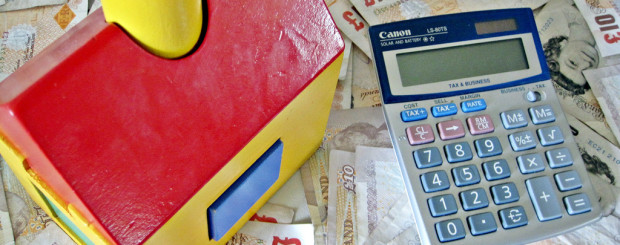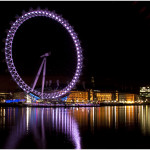London Cost Per Day
When it comes to determining the daily cost of living in London, it’s necessary to first understand exactly what it is that needs to be taken into account. One of the easiest methods of doing this is to write down the essential outgoings that all of us have, followed by those that are personal to our own situation.
Of course, it’s necessary to have the most up to date figures that are available, and to ensure this is the case we take our data from two key data collaborations that update London prices on a real-time, daily basis. These are Expatistan and Numbeo.
So with that in mind, let’s first take a look at outgoings that will apply to everyone who lives in London.
Accommodation
No matter what your circumstances, we all need somewhere to live. This might be the purchase of a house, renting an apartment (or flat, as it’s known in the UK), or perhaps leasing a room in a shared house.
The average cost (as of September 2015) of purchasing an apartment in the centre of town costs around £15,592 per square metre. This drops to around £8,012 if you look outside the centre in one of London’s suburbs.
Rental costs of a central one-bedroom apartment come in at around £1,648 per month and £1,106 on the outskirts.
Current available properties to rent and purchase can be found at Zoopla, Right Move and Prime Location. And for those looking to rent a room in a shared house, or perhaps flat share, check out Easy Room Mate and Spare Room.
Utilities
These include heating expenses (gas and/or electricity), council tax, water, TV, telephone and broadband (ADSL). For the average size, 85 square metre apartment, you can budget on around £137 per month (or for a couple, this rises to around £175).
A top tip for those moving to London is to keep a constant watch on the price you pay for utilities. Websites such as U Switch and Money Saving Expert can show you if you’d be better off by switching to another supplier – sometimes saving hundreds of pounds per year.
Another tip when signing up to utility contracts – including those of TV, phone and Internet, is to do so via a cashback money site, such as Top Cashback.
These sites can prove very lucrative and won’t cost you a penny. They simply band together thousands of people around the country, and any commission payable is given back to you. This can amount to hundreds of pounds over the year, especially if you’re setting up home in London for the first time.
Food
Food! This is an area whereby it’s very easy to spend more than necessary on a regular basis. And of course, eating is one of the simple pleasures in life. For the purposes of this ‘cost per day’ scenario, we’ll look at the average cost of shopping and cooking in the most efficient and healthy way possible, rather than grabbing take aways and eating in restaurants.
In such a way, allowing about £5-7 per person or £10 for a couple per day will more than adequately cover these expenses.
Transport
One of the great things about living in London is that it really isn’t necessary to own a car. Transport for London operates a great underground train network (known as The Tube), the iconic red London buses and overland trains as well. Utilising these you can get to pretty much anywhere in the city you wish.
A monthly season pass that covers you for all of these costs £128.
Looking at all the above living expenses, we can determine that for the average person, living outside the very centre of the city in a rented apartment, the daily cost of essential living will set you back £51.06 per day.
Other living expenses
Of course, there are many other expenses that need to be taken into account over and above what’s already been mentioned.
These include:
-
Personal care
-
Clothing
-
Entertainment
By personal care we’re talking about such things as haircuts, bathroom items (toothpaste, deodorant etc.), toilet paper, over the counter medication and suchlike.
Surprisingly, even though London is an expensive city in which to live, such products actually represent good value for money. Those coming from the US will be pleasantly surprised at somewhat lower prices for these items than you would pay back at home.
For example, 6 days worth of cold and flu medication will set you back around £4.32. 4 toilet rolls cost £1.93 and a tube of toothpaste, £1.83.
Clothing is a very subjective matter. It will depend on where you shop, whether you like to purchase supermarket brands or opt for designer labels. The advice here is to shop around, as you’ll find highly different prices depending on your choice of outlet.
One top tip for those who like to purchase designer labels is to head to one of the many outlet villages that exist. Bicester Village is one, and is easily accessible from London by train or coach. Here you’ll find a huge variety of designer shops offering what can sometimes amount to massive discounts on the original retail price.
Entertainment includes such things as eating out, going to the movies, gym membership, a daily cappuccino, that kind of thing. Once again, the amount you spend on such things will depend on your lifestyle and available budget. However, there are certainly ways you can keep these costs to a minimum.
If you’re an avid movie goer, consider investing in a monthly unlimited card with Cineworld. This allows you to watch as many movies as you choose, all for a monthly cost of £16.90.
For those who enjoy eating out at restaurants (and who doesn’t?), then you can cut these costs by the many deals that are offered through websites such as Voucher Codes and Groupon. You can get such discounts as 2 for 1, a free dessert, free main when one is purchases, and the such like.
If you’re planning on joining a gym, always check if the company you work for has a corporate agreement with any local clubs. These can amount to a substantial discount with gyms such as Virgin Active and Fitness First.








